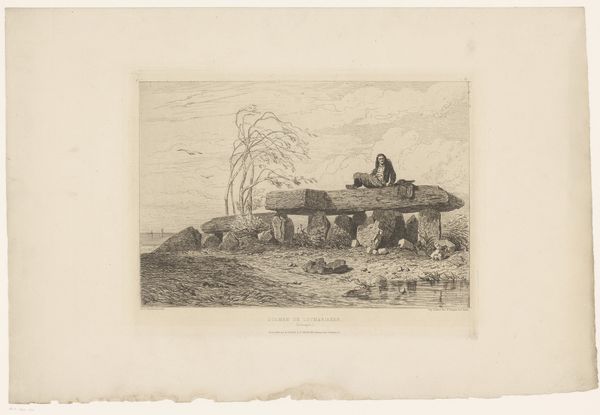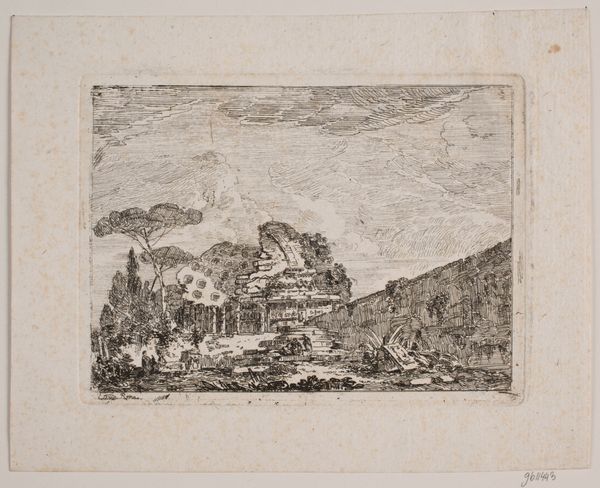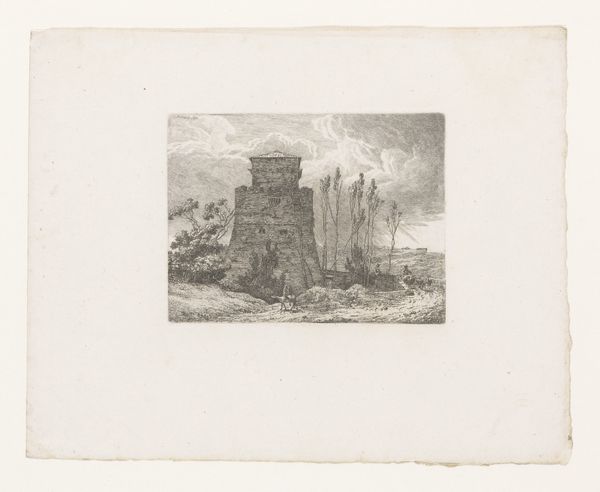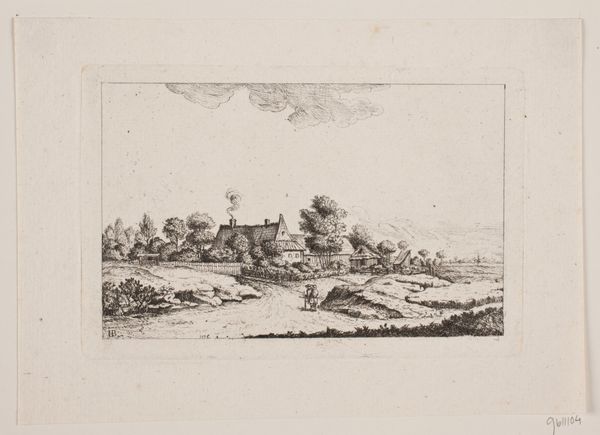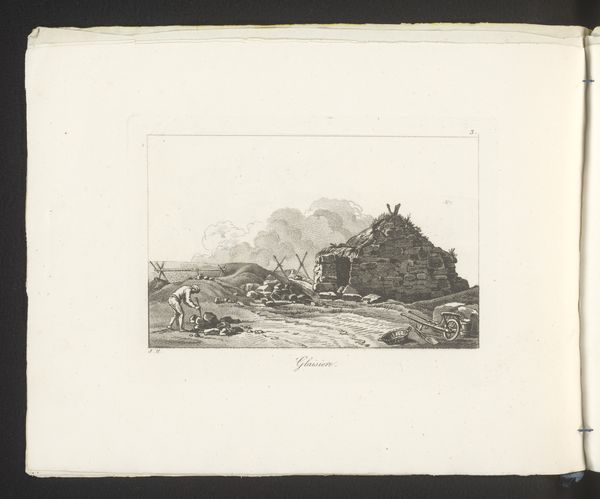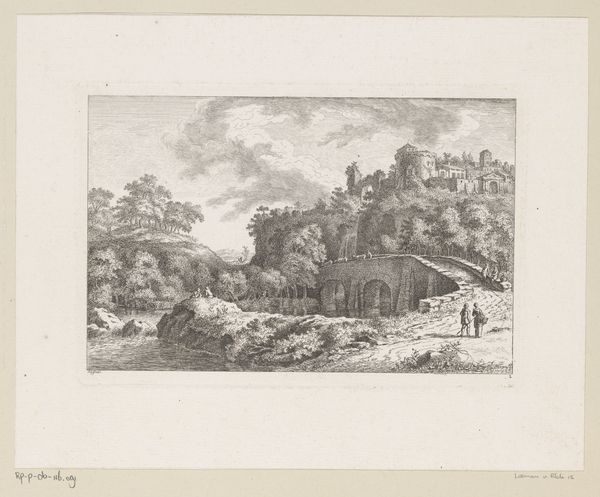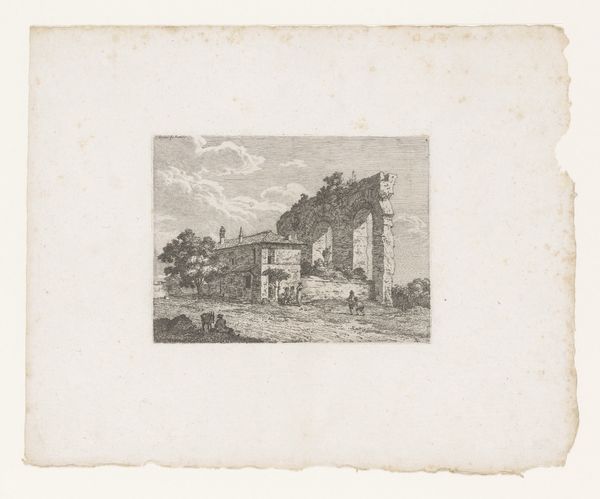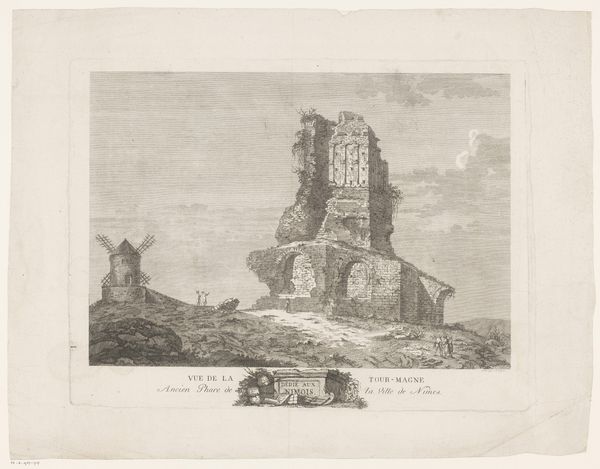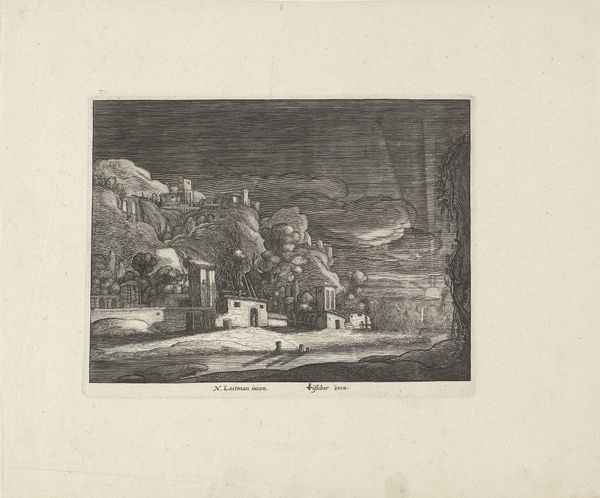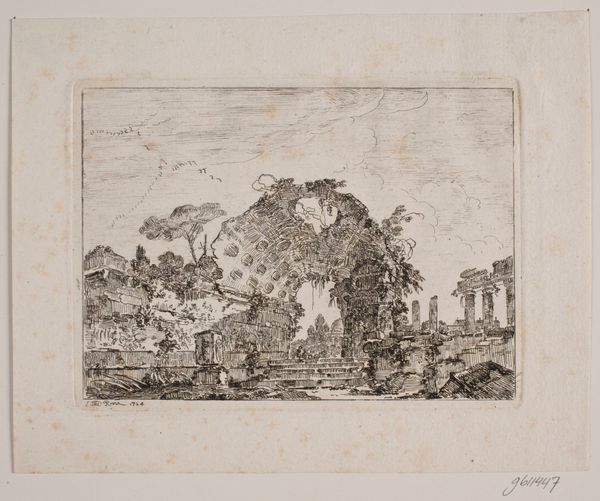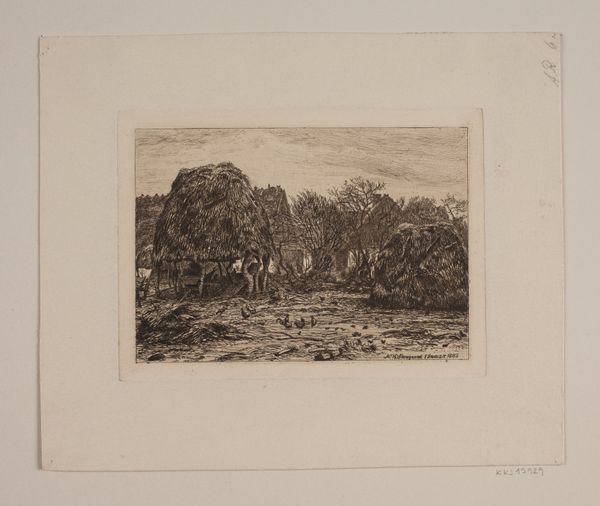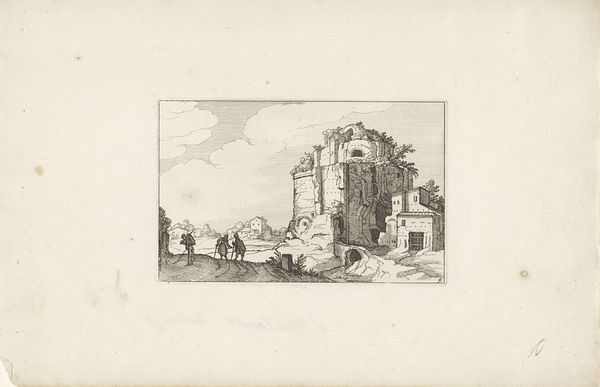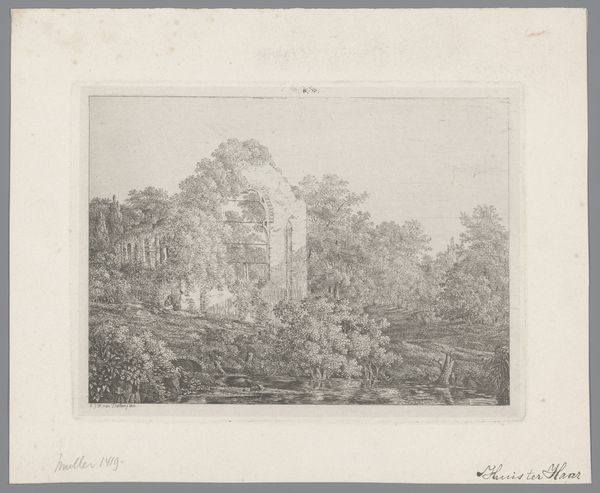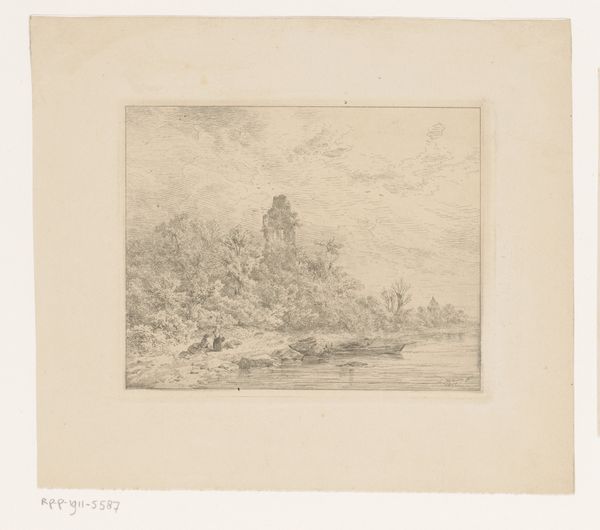
print, etching
# print
#
etching
#
landscape
#
etching
#
ancient-mediterranean
#
history-painting
Dimensions: 103 mm (height) x 139 mm (width) (plademaal)
Curator: There's such a stark, lonely beauty to this etching. Editor: Indeed. This is "Antikke ruiner," or "Ancient Ruins," by Jens Petersen Lund, created in 1764. It's rendered through the printmaking technique of etching and it conjures, for me, notions of loss, empire, and how nature reclaims these grand constructions. Curator: Absolutely, the aquatint really contributes to that somber feeling. Looking at the remnants of architecture – this structure, perhaps a temple – reminds me of power structures built on exploitation eventually erode. Consider the hands that built this, the social context. Who benefitted from such a structure? And what replaced it in its decaying aftermath? Editor: Well, etching as a medium is itself rooted in labor and craft. Consider the skill involved in manipulating metal, acid, and ink to produce this image. Lund’s choice of etching emphasizes a mode of production accessible to a broader, middle-class audience who would consume these images. What kind of social position gave way for this artist to make something in that particular technique? Curator: It’s haunting. The deliberate contrast perhaps draws the viewer into these ruins—it evokes a confrontation with what used to be versus what remains. The scale—or perhaps the suggested scale given the perspective—is impactful, it demands we question what value we still place on relics of the past in modern constructions of power. Editor: Precisely! And the act of making these ruins visible through this reproducible medium allows a much wider public access to that power – at least, that constructed representation of past power. Curator: That’s a very important point. Thank you for framing the means through which this message is even spreadable in that moment of production. Editor: Thinking through materiality provides an opening through which we question broader historical assumptions about value, permanence, and progress itself.
Comments
No comments
Be the first to comment and join the conversation on the ultimate creative platform.
